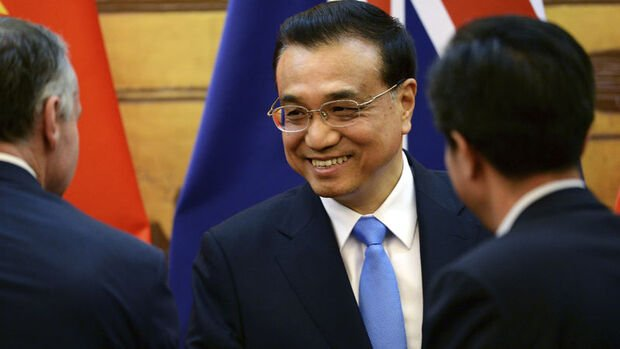China calls on Europe for economic cooperation
Chinese Premier Li sent a message of cooperation to Europe against economic security concerns. At a time when economic security concerns are rising in Europe, Chinese Premier Li Jiang called for openness and cooperation against risk perception during his visits to Germany and France. Premier Li, who took office in March, made his first overseas visits to Germany and France, sending the message that China supports Europe’s “strategic autonomy” at a time when competition and tensions with the US are rising. Having held contacts in Germany and France since the beginning of the week, Li held meetings with President Frank-Walter Steinmeier and his counterpart Olaf Scholz in Germany, and with President Emmanuel Macron and his counterpart Elisabeth Borne in France. Li, who held the China-Germany intergovernmental consultative conference with his German counterpart in Berlin and attended the New Global Financing Pact Summit hosted by the French government in Paris, met with business world representatives in both countries. Li chose to make his first overseas visits as prime minister to two countries that are the locomotives of the European Union (EU), sending a message of developing economic and political relations with the continent against political confrontation at a time when global power competition with the US is increasing. It was noteworthy that the Chinese Premier’s visits to Europe coincided with US Secretary of State Antony Blinken’s visit to Beijing. While Blinken’s visit to China aimed to establish communication channels in order to ensure stability in tense relations, Li’s contacts in Europe focused on developing economic cooperation and eliminating risk perceptions regarding economic security. He held contacts in Berlin Premier Li, who started his contacts in Berlin on June 18, called for more openness and cooperation instead of an approach of severing economic ties during his meeting with business world representatives there. Li said, “Preventing risks and cooperation are not opposites. It is understandable that the parties have security concerns, but what is important here is how to rationally define risks and take measures accordingly.” Arguing that governments should create a stable business environment and leave the job of risk assessment and management to companies according to market dynamics, Li said, “We hope that Germany will continue its open market approach and provide a fair, transparent and non-discriminatory business environment for Chinese companies investing in the country.” Speaking at the China-Germany Economic and Technical Cooperation Forum, Li expressed his views on the “risk reduction” approach that has been voiced in Europe recently with the following words: “I worked in local governments for a long time, and most of the vehicles we used were German brands. When I was the Party Secretary in Shanghai for 5 years, the official car given by the government was a Volkswagen made in China. I did not see this as a risk. When we go to the hospital and have a CT scan, they are always done with Siemens devices, but when you go in, you don’t say, ‘This is unsafe. ’ We in China have never seen any of these as risks and never thought, ‘Let’s reduce the risk. ’”


